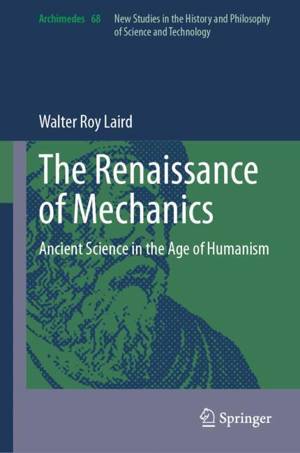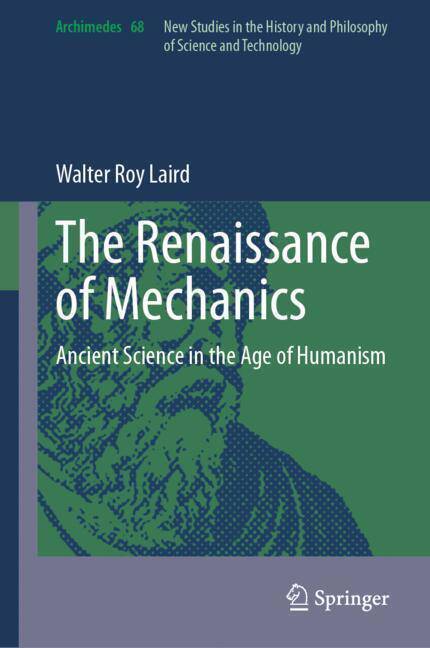
- Retrait gratuit dans votre magasin Club
- 7.000.000 titres dans notre catalogue
- Payer en toute sécurité
- Toujours un magasin près de chez vous
- Retrait gratuit dans votre magasin Club
- 7.000.0000 titres dans notre catalogue
- Payer en toute sécurité
- Toujours un magasin près de chez vous
Description
This book gives an account of the origins of theoretical mechanics in antiquity, its limited reception in the Arabic and Latin Middle Ages, and its recovery and subsequent development in Italy to the time of Galileo. From late antiquity to the fifteenth century, the ancient science of mechanics--the theory of machines--was almost completely unknown in the Latin west. Then, from the mid-fifteenth century on, Italian humanists began to recover the ancient texts, and from them through the sixteenth century Italian mathematicians restored the ancient science of mechanics. The Renaissance of Mechanics first examines the principal ancient works on mechanics--the Aristotelian Mechanical Problems, the mechanical geometry of Archimedes, and Hero's Mechanics--and then describes their limited reception in the Arabic world and their even more limited transmission to the medieval Latin west. It then traces their recovery in the fifthteenth century and their assimilation inthe sixteenth by Niccolò Tartaglia, Francesco Maurolico, and Guidobaldo dal Monte, culminating in Galileo's rediscovery of Hero's lost mechanical principles. The book ends with an examination of Galileo's mechanics and its relation to his new science of motion, and suggests how modern mechanics would emerge from these ancient roots. Detailed analyses of these works offer new insights and interpretations while remaining accessible to general historians. The Renaissance of Mechanics will be of especial interest to those working in the fields of renaissance humanism and the history of ancient, medieval, and renaissance science and mathematics.
Spécifications
Parties prenantes
- Auteur(s) :
- Editeur:
Contenu
- Nombre de pages :
- 413
- Langue:
- Anglais
- Collection :
- Tome:
- n° 68
Caractéristiques
- EAN:
- 9783031455049
- Date de parution :
- 01-06-24
- Format:
- Livre relié
- Format numérique:
- Genaaid
- Dimensions :
- 156 mm x 234 mm
- Poids :
- 789 g

Les avis
Nous publions uniquement les avis qui respectent les conditions requises. Consultez nos conditions pour les avis.






